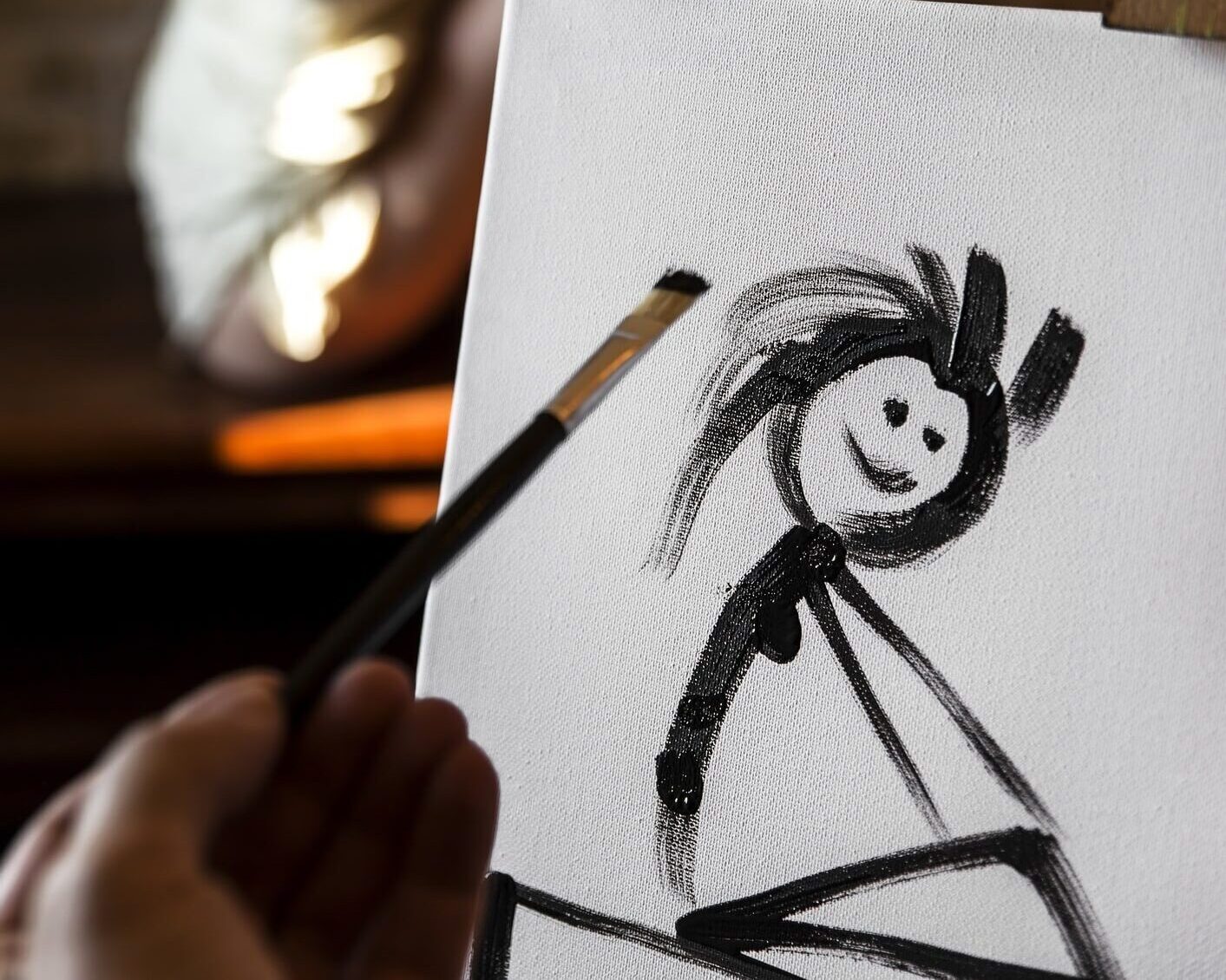It’s too bad you’re not a man,” the mayor of New York City tells the Italian-American Catholic missionary Frances Xavier Cabrini in the recent movie Cabrini. “You would’ve been an excellent man.”
She replies, “No, Mayor. Men can never do what we do.”
Two recent movies about women’s impressive achievements—Cabrini and Young Woman and the Sea, about Gertrude Ederle, who swam the English Channel in 1926—challenge viewers to reconsider what equality between the sexes should really mean. These movies are an encouraging departure from the progressive feminist views of too many Hollywood films: Cabrini’s and Ederle’s achievements happened because they were women, not because they were trying to be like or become men.
Cabrini is about what women, particularly women of faith, can do, and do uniquely. Mother Cabrini created a global network of hospitals and charitable organizations in the Victorian era despite the many attempts of so many men in her church and in government to thwart her. She was canonized as the first American saint in 1946.
The central point of Cabrini, which is directed by Alejandro Monteverde and streaming now on the Angel Studios app, is conveyed by one brief scene. After repeated requests for funding to spearhead a mission building orphanages in China, Cabrini (played by Cristiana Dell’Anna) travels to the Vatican at their invitation. The cardinal assistant to the Pope tells her that after so many rejected requests, he felt she needed to hear “no” in person to get the point across. But instead of taking no for an answer, Cabrini demands to see the Pope directly.
The first thing Pope Leo XIII (played by Giancarlo Giannini) says to her is, “For one little woman you make a lot of noise.” He then assures her that mission work in China is not an option.
As the Pope walks away, Cabrini calls out to him, “Is it because I’m a woman? Is that why I must limit my scope?”
Then she asks: “Wasn’t it Mary Magdalene who brought news of the Resurrection to the Apostles? If God confided such a mission to a woman, why should He not confide in us?”
Mother Cabrini is determined to show the Pope that his own faith asks for greater things from women like her, and men like him. The Pope has no choice but to listen. And Mother Cabrini, against all odds, begins to succeed in her mission.
Gertrude “Trudy” Ederle was also determined. As the first woman to swim across the English Channel, Trudy’s habitual bucking of the patriarchal mores of her day irritated some of the men around her, especially her father, but eventually put her on a path to greatness of her own making.
In Young Woman and the Sea, in theaters now and streaming soon on Disney+, Trudy is played by Daisy Ridley of Star Wars fame. Born in New York City in 1905, Trudy as a young girl is frustrated with the limitations put on women in her time. As a child, she is eager to make noise and explore the world around her but is constantly told “no.” Trudy especially wants to swim, but her father initially says doing so would be unbecoming for a girl.
Respectfully dismissing her husband’s aversions to the idea, Ederle’s mother encourages her daughter to follow her passion for swimming. Men laugh at the thought. The boys her age at the pool laugh too. Until she beats them in lap times. When her mother announces at the dinner table that Trudy and her sister are joining a women’s swim team, the men laugh more.
But that team, coached by a woman, would eventually mold Ederle into an athlete competing in the 1924 Olympics in Paris, where the women’s male coach didn’t think the female swimmers were important enough to train. Ederle is later inspired by her fans among the girls in her neighborhood to do something even bolder than competing in the Olympics: crossing the treacherous English Channel, something no woman (and few men) had ever done.
Ederle wants her original female coach for her training, but Ederle’s sponsor instead sticks her with the same useless male coach from the Olympics, who had attempted to cross the channel himself once but failed. His mounting jealousy of Trudy is of no help to her, and that’s putting it mildly. He is more of a hindrance than a help. Another man in her way.
Whether you want to call her story feminist or something else, it was clearly a case of a girl with something to prove. As Ederle, who died in 2003 at ninety-eight years old, said in a 2001 interview, “People said women couldn’t swim the channel. I proved they could.”
Much like Cabrini, Ederle did exactly what she wanted—something almost every man she crossed thought somewhere between impossible and improper—and was cheered as a hero in the end. The largest ticker-tape parade in New York City for an athlete, man or woman, to this day was to celebrate Ederle’s successful crossing of the English Channel nearly a century ago. Though she’s a footnote today, she was said to be as well-known as Babe Ruth in her time. Now, with Young Woman and the Sea, her story is again getting the attention it deserves.
While Young Woman and the Sea (directed by Joachim Rønning) is a Disney movie, it doesn’t follow the 1990s-era “women can do anything” trope. It and Cabrini do something far better: celebrating that these women did these wonderful things. Ederle’s victory wasn’t just an admirable aside or an early-century pat on the head for a lesser being who did well. She proved herself equal to men, and maybe even superior. So her being a woman was not only central to her story, it’s the story.
If these films sound like feminist movies, that’s because they are—that is, if feminism is taken to mean, as the Cambridge dictionary defines it, “the belief that women should be allowed the same rights, power, and opportunities as men and be treated in the same way.” Cabrini’s and Ederle’s stories unquestionably fit the bill.
What Cabrini’s and Ederle’s examples do not encourage—not even remotely—are the popular contemporary concepts of progressive feminism, or gay and transgender activism, that often deny that men, women, and fixed gender categories even exist. What Cabrini and Ederle accomplished was deeply human and beautiful. As representatives of the female half of our species, they needed to show what their kind could do in a time when it was said they couldn’t. Contrast this with modern progressive feminist and transgender activists who too often reject the God-given distinction of the sexes to indulge their own egotistical delusions.
Whereas Cabrini and Ederle show the power of what women can accomplish, modern feminists have often been eager to downplay femininity, instead trying to prove that women can be just as masculine as men are. Worse, they often deny the concepts of femininity and masculinity altogether as mere social constructs to be done away with completely. Cabrini and Ederle showed us our humanity, but today’s activists want it abolished.
Cabrini didn’t reject her femininity. She owned it.
Conservatives put off by the term “feminism,” for many, many good reasons, should make a distinction between the basic sense of the word championed by women like Cabrini and Ederle and the more toxic versions they have become accustomed to. After all, the notion that women should be afforded the same rights and dignity as men didn’t begin with the Nineteenth Amendment and women’s suffrage one hundred years ago. Jesus Christ’s extraordinary treatment of women was radical in His time, and as Cabrini reminded the Pope, women were also integral to His story, before and especially after the Resurrection.
Women were the first to see the risen Christ. History doesn’t get more important than that.
It should not be considered unreasonable or even undesirable to consider that women can do more than men thought they could, or should, in their various times. That kind of equality and basic worth, sought and won by Frances Xavier Cabrini, sought and won by Trudy Ederle—given to Mary Magdalene—is profoundly good and graceful.
Ederle was not trying to join the boys’ swim team or declaring herself a member of another sex. Cabrini was not claiming that men could be just as motherly and nurturing as women, as modern feminists such as Gloria Steinem have said. No, she was saying quite the opposite, telling New York City’s mayor that in establishing so many hospitals and charities, women proved that they were better at nurturing than men. Men needed her to accomplish something as incredible as what she did.
Cabrini didn’t reject her femininity. She owned it.
So did Ederle. “I have no complaints,” she said in an interview in the 1950s. “I am comfortable and satisfied. I am not a person who reaches for the moon as long as I have the stars. God has been good to me.”
Go see Young Woman and the Sea, and if you bring a daughter, sister, mother, or grandmother along, even better.














